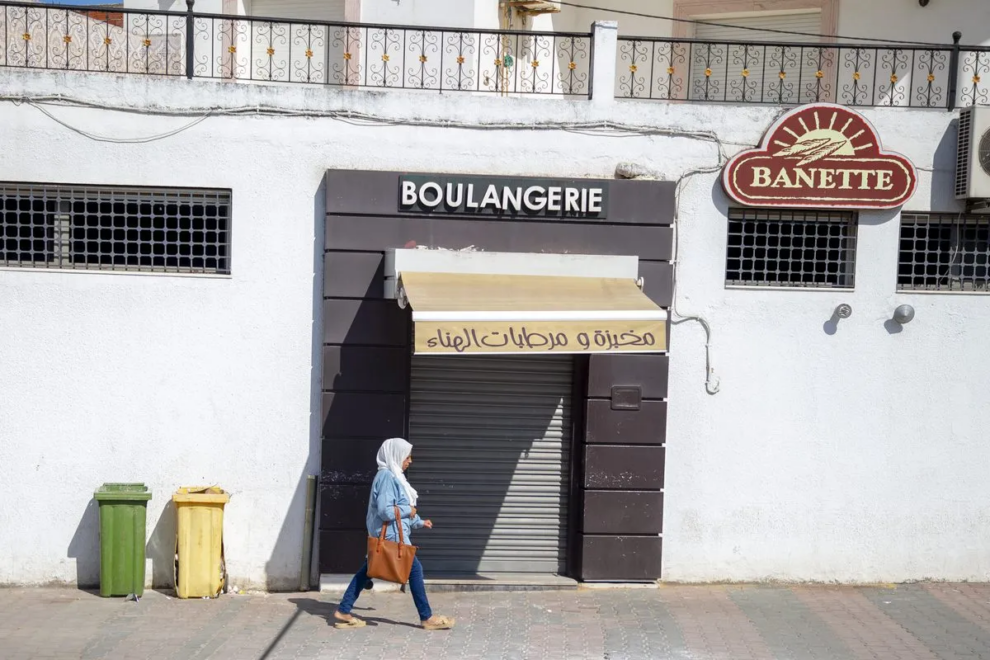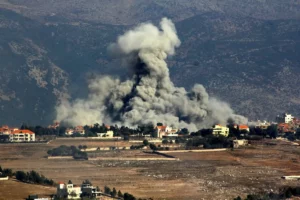The decision follows the suspension of baking activities in all the bakeries under the association’s jurisdiction starting yesterday with the stop to the different varieties of bread affiliated to the Conect group.
The Professional Association of Modern Bakeries, affiliated to the Confederation of Citizen Enterprises of Tunisia (Conect), announced 15 days of protest starting Monday, August 7, in front of the headquarters of the Ministry of Commerce and Development of Tunis. The decision follows the suspension of bread-making activities in all the association’s bakeries starting from yesterday, Tuesday 1st August, with the stop to the different varieties of bread affiliated with the Conect group. Yesterday, the Tunisian economic daily “L’Economiste Maghrebin” reported the presence of long queues in front of Tunisian bakeries, recalling the “painful lessons of the past” such as the bread riots in 1984. For his part, the President of the Republic, Kaies Saied, recently declared that bread is “a red line” that cannot be crossed, noting “that there is one bread for the rich and another for the poor,”
Bakeries receive a state subsidy to sell loaves at discounted prices, but many of them are reluctant to sell the subsidized bread – such as the 190 millim dinar baguette – because it is not considered profitable, offering customers more elaborate and expensive starchy foods . Hence the lunge of President Saied. “L’Economiste Maghrebin”, however, wonders if “the State does not involuntarily encourage bakeries, some of which are going bankrupt because of the exorbitant prices of electricity and gas, to defraud” customers. The truth lies in the fact that, given the empty coffers, “the State imports an insufficient quantity of soft wheat” and consequently “the quantities of flour supplied to the bakeries are lower than the needs of local consumption”, concludes the newspaper.
According to a recent bulletin released by the “Ibn Khaldoun Forum for Development”, a research center specializing in development economics, the damage to Tunisia’s public finances in the last three years has been the most serious since 1986, also due to the Covid-19 pandemic and the war in Ukraine. It is worth remembering that Tunisia has been negotiating for over a year a maxi-financing of 1.9 billion dollars from the International Monetary Fund (IMF) to avoid the bankruptcy of the North African country with an annexed domino effect with unpredictable outcomes, both in Europe and in North Africa. However, the radical cut in subsidies, the freeze on public wages and the privatization of public companies requested by the IMF are judged unacceptable by the Carthage administration. In the meantime, Italy has promoted a softer approach in the West, managing to arrive, last July, to an agreement on a European aid package that seems to have averted, at least temporarily, the Tunisian default. Shortly after the Tunisia-EU agreement, however, Saudi Arabia declared that it would provide Tunisia with financial assistance worth 500 million dollars, including a grant of 100 million.
The Tunisian dossier also closely affects Italy for at least two reasons: migratory flows and energy supply. The arrivals of migrants by sea have multiplied dramatically and are reaching the peaks of 2014 (170,000 total landings by sea) and 2016 (180,000 arrivals by sea). Not only. The Transmed pipeline, also known as the Enrico Mattei pipeline, brings Algerian gas to Italy via Tunisia. And Algeria is now Italy’s top gas supplier. Not to mention that the electricity interconnection project between Italy and Tunisia – for which Brussels recently approved a loan of 300 million euros – could act as a driving force for Italian investments in renewables in North Africa, transforming Italy into an “energy hub” for the whole of Europe. To this it should be added that this year Italy has become Tunisia’s first commercial partner, overtaking France for the first time.
Source : AGENZIANOVA

















Add Comment